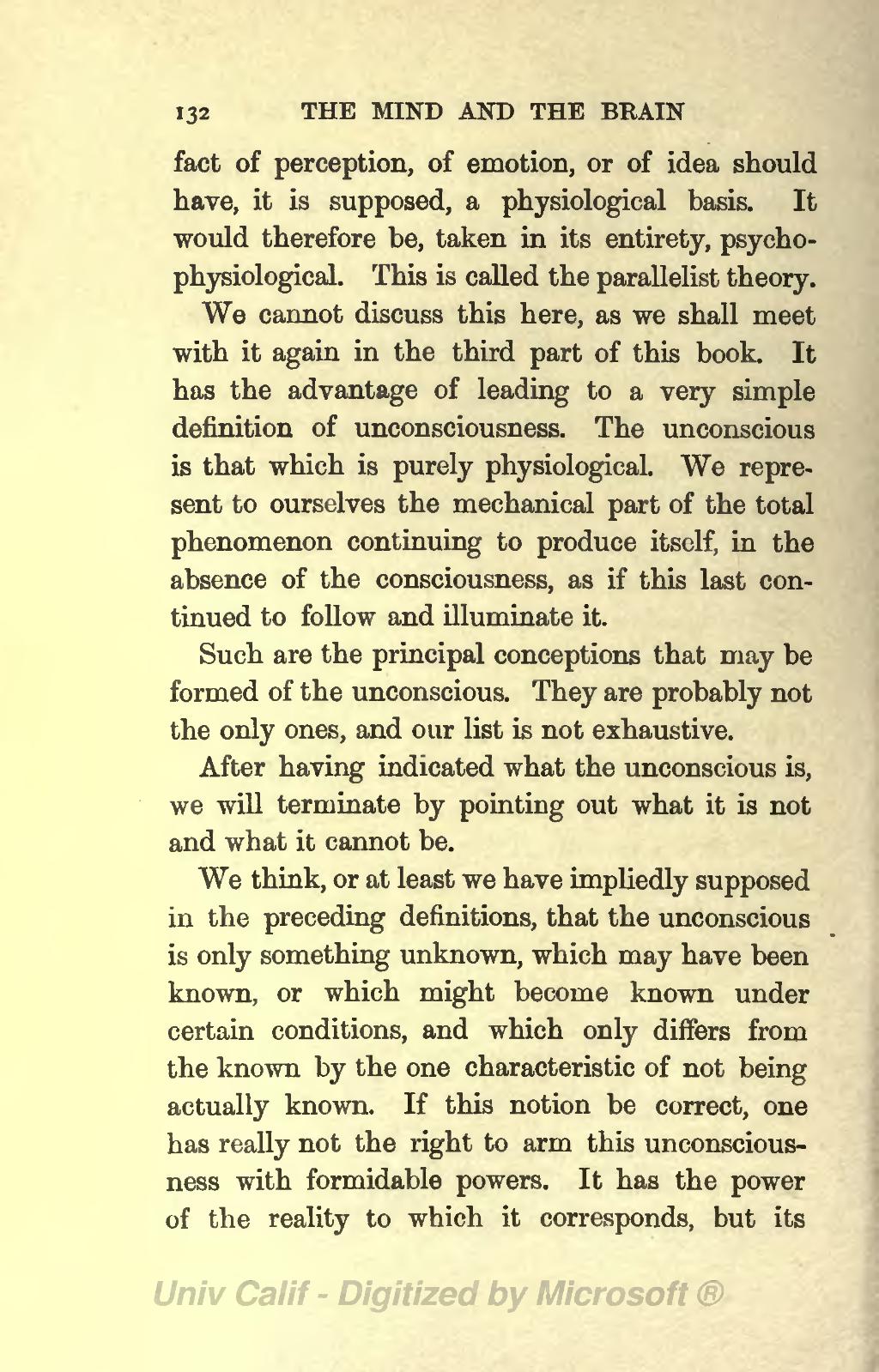fact of perception, of emotion, or of idea should have, it is supposed, a physiological basis. It would therefore be, taken in its entirety, psycho-physiological. This is called the parallelist theory.
We cannot discuss this here, as we shall meet with it again in the third part of this book. It has the advantage of leading to a very simple definition of unconsciousness. The unconscious is that which is purely physiological. We represent to ourselves the mechanical part of the total phenomenon continuing to produce itself, in the absence of the consciousness, as if this last continued to follow and illuminate it.
Such are the principal conceptions that may be formed of the unconscious. They are probably not the only ones, and our list is not exhaustive.
After having indicated what the unconscious is, we will terminate by pointing out what it is not and what it cannot be.
We think, or at least we have impliedly supposed in the preceding definitions, that the unconscious is only something unknown, which may have been known, or which might become known under certain conditions, and which only differs from the known by the one characteristic of not being actually known. If this notion be correct, one has really not the right to arm this unconsciousness with formidable powers. It has the power of the reality to which it corresponds, but its
